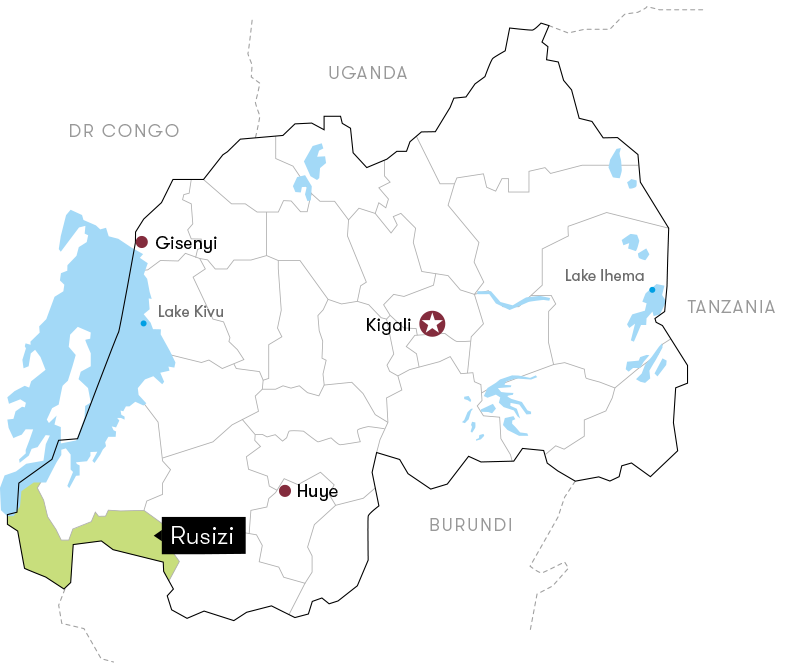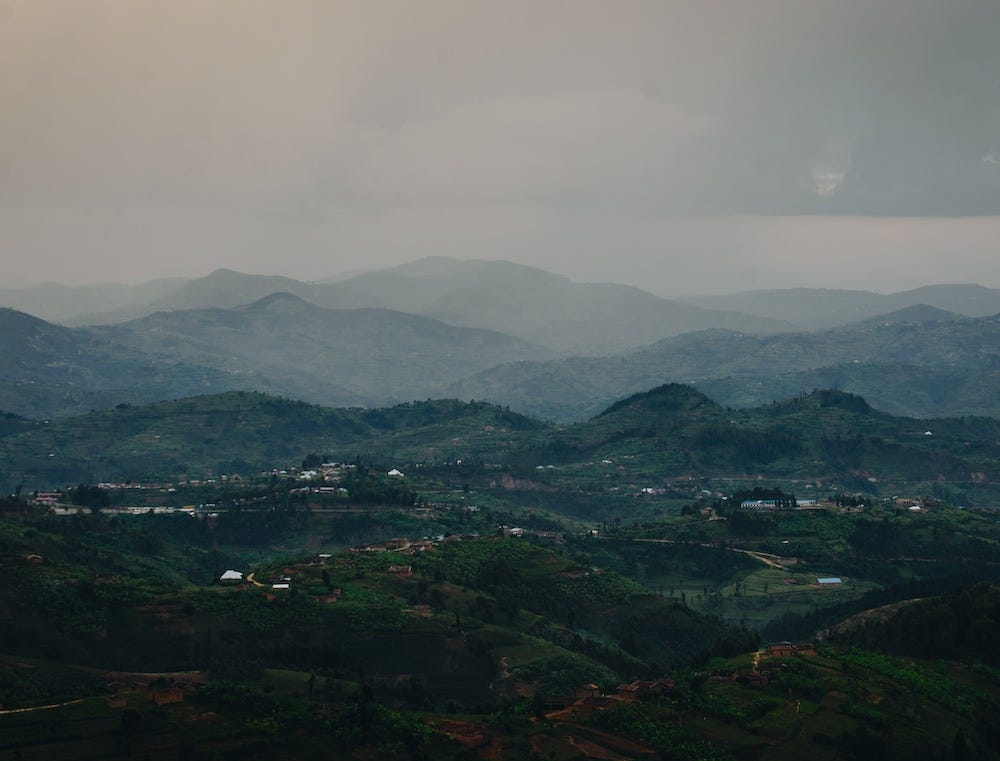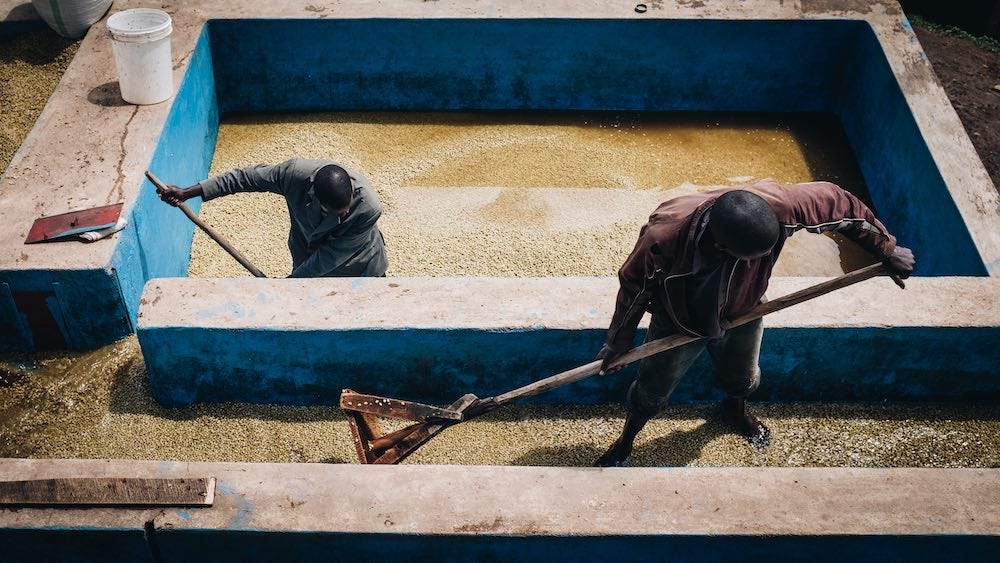Rwanda FW15+ Rusizi (2023)
| Bag Weight | 60 KG BAG |
|---|---|
| Harvest Season | 2022/23 |
| Status | Spot |
| Lot Number | P8001874-1 |
About This Coffee


The Process
Processing begins when the farmers deliver their cherries to the mill for sorting. Immature and damaged cherries are removed by hand and then the remainder floated in an open water tank. The floating cherries (lower quality) are removed, and the cherries that sink are used for the highest quality coffees like this lot.
Selected cherries are pulped and then undergo 2 fermentation processes. First, an initial dry fermentation
for 12-18 hours, followed by a wet fermentation - submerging the coffee to create more anaerobic conditions - for 24 to 36 hours. The enzymes present during this process break down the sugary mucilage on the outside of the bean, allowing for a clean washing process and contributing to the acidity and complexity of the final cup. Once the sugary mucilage has broken sufficiently the coffee is washed and graded in clean water channels, before being dried in the sun on raised African beds for an average of 12 to 18 days. The parchment must be carefully maintained to ensure an even drying and it is further protected from rain and hot sunshine. Once the optimum moisture content has been reached, the parchment is bagged and rested for 1-2 months in a cool, dry environment. After it has rested the coffee is transported to the capital of Kigali for hulling, grading and hand sorting, before being bagged in GrainPro for export.


History of Coffee in Rwanda
The commercialisation of coffee came about gradually in Rwanda and coffee was always produced on smallholder farms. Independence brought some improvement to the coffee infrastructure as the government established more modern and centralising processing. But this meant the government set the price they would pay for coffee and farmers had no other options. There was no focus on quality because there was no incentive whatsoever. Despite much of the coffee being Bourbon, there was no sorting or grading so all the coffee was commercial grade. Rwanda exported 642,000 bags of coffee in 1993 and 447,000 in 1994. Then, as something of a stark reminder of the genocide, Rwanda exported a mere 22,000 bags in 1995. Today, Rwanda exports only 43% of what it did in 1993, but current exports represent much greater value because for the last 20 years the focus has been on quality rather than quantity. Rwanda’s ideal growing conditions are no longer wasted on poor processing. New washing stations have opened in all coffee growing regions, innovative cupping labs that arrive built into shipping containers, and cooperatives have been established. For the last 15 years, Rwandan specialty coffees have consistently ranked among the finest in the world.
- Subregion Giheke sector, Rusizi district
- Producer Type Washing Station
- Wet Mill Rusizi CWS
- Processing Washed
- Bag Types Grain Pro / Ecotact
- Plant Species Arabica
- Variety Bourbon
- Min Growing Altitude 1700m
- Max Growing Altitude 2000m
- Screen Size 15 Up
- On Sale Yes
- Top Lot No
- Price Per Kg £6.75
- Status Spot
- Coffee Grade RWA CA FW SC 15+
- CTRM Contract Number P8001874-1
- Origin Rwanda
- Warehouse Vollers Group Uk





